Keywords: National Apology
-

RELIGION
- Frank Brennan
- 15 May 2017
The reconciliation of this vertical relationship is possible only through the mediation of Jesus who embodies, lives and dies the reality of this reconciliation. He puts us right with our God and thereby establishes the basis for right relationship with each other. In many countries such as Australia, Timor Leste and South Africa, the public rhetoric and programs for reconciliation have, at least in part, been informed and underpinned by this theological perspective.
READ MORE
-

MEDIA
- Rohan Salmond
- 28 April 2017
35 Comments
Even though the post was quickly withdrawn and an apology issued, the backlash has lasted more than four days. It was enough to warrant a front page story on The Daily Telegraph, a call for Abdel-Magied's dismissal by the deputy prime minister and public repudiations by half a dozen government front benchers and other politicians, including Pauline Hanson. It's ironic that the very commentators who constantly rail against political correctness are apoplectic about a woman being politically incorrect.
READ MORE 
-

AUSTRALIA
- Andrew Hamilton
- 01 March 2017
18 Comments
It is a commonplace that our political discourse is much impoverished. Speeches are built around sound bites. The Trump administration is experimenting with letting go of speeches and communicating within the limits set by Twitter. In such a world there is little space for more complex rhetoric, for cultural reference, for reflection on historical precedents, or for wondering. Our politicians' words leave no echoes. It is worth musing on what may be lost in the thinning of public discourse.
READ MORE 
-
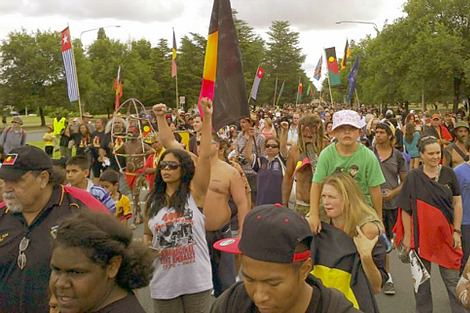
AUSTRALIA
- Celeste Liddle
- 23 January 2017
27 Comments
For many years I felt that by changing the date we might come to a more inclusive national celebration. However the past few years of Indigenous activism have left me cynical. The things we were fighting for decades ago are very similar to the things we're still fighting for. Australia has not acknowledged and rectified its history; rather it seems content to reinforce its amnesia. It's therefore unlikely I will be able to stop protesting this celebration, regardless of the day it's held upon.
READ MORE 
-

AUSTRALIA
- Frank Brennan
- 13 October 2016
2 Comments
With idealism and pragmatism, I invite you criminal lawyers in the next 30 years to imagine and enact a better criminal justice system which alleviates rather than exacerbates the devastating effects of colonisation and marginalisation on Indigenous Peoples, and most particularly their children. An intelligently designed criminal justice system must help secure the foothold of Indigenous children in both the Market and the Dreaming.
READ MORE
-

AUSTRALIA
- Joan Hume
- 08 September 2016
15 Comments
On 26 July this year of 19 severely disabled residents were massacred as they slept in their beds at a residential care facility in Sagamihara, Japan. A further 26 were wounded. The perpetrator, Satoshi Uematsu, a former employee sacked for his disturbing views about the residents, later boasted of his 'achievements': 'It is better that disabled people disappear.' Isn't there an ever present probability that without an inclusive and accepting community, without believing in our possibilities rather than seeing only our limitations, we will spawn the likes of another Satoshi Uematsu here?
READ MORE 
-
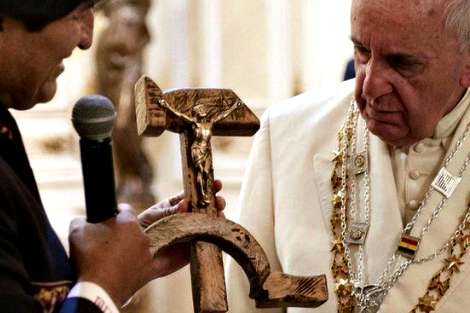
AUSTRALIA
- Andrew Hamilton
- 16 July 2015
17 Comments
The media declared Pope Francis not amused after Bolivian President Morales presented him with a crucifix superimposed on a hammer and sickle. It turned out that the design was from Jesuit Luís Espinal, who was captured, tortured and killed by right-wing paramilitaries in 1980. It depicted Christ's affinity with workers and peasants. Pope Francis was more interested in the reality of a crucified people than in discussing representations of the crucified Jesus.
READ MORE 
-
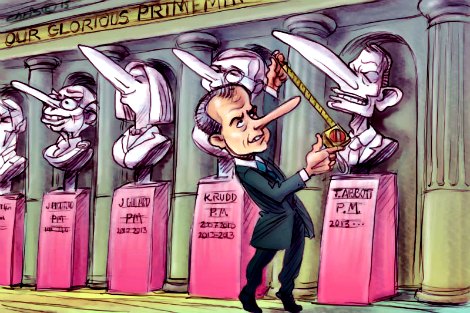
AUSTRALIA
- John Warhurst
- 06 July 2015
18 Comments
The terms 'lie' and 'liar' have become so completely devalued that there are now far worse sins in modern politics. That is why it's hard to get excited about Opposition Leader Bill Shorten choosing to lie on air to Neil Mitchell about his involvement in discussions with Kevin Rudd to unseat Julia Gillard as Prime Minister.
READ MORE 
-

- Greg O'Kelly
- 01 July 2015
3 Comments
The phrase 'the public square' is peppered throughout Frank Brennan's work. The 1988 film Cinema Paradiso depicts the public square in a Sicilian village over 30 or so years, and its slow and subtle change from a place where human beings gather to laugh, play and discuss. Billboards and garish signs appear and it becomes a car park bereft of its humanity.
READ MORE
-

AUSTRALIA
Steve Ciobo MP described Zaky Mallah’s terrorism acquittal as based on a 'technicality'. This was that the anti-terror laws enacted after his acquittal were 'not retrospective'. The truly frightening thing about retrospective laws is that they make conduct which is perfectly legal when it is done, criminal by fiat. Anyone can be convicted of anything retrospectively, and this is why it is forbidden in the constitutions of many countries.
READ MORE 
-
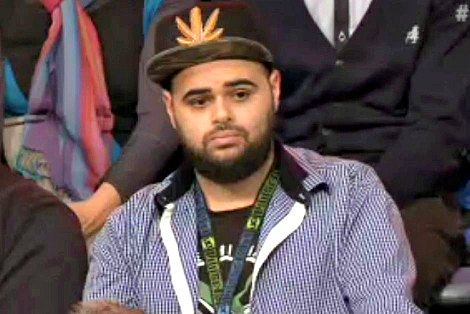
AUSTRALIA
- Andrew Hamilton
- 29 June 2015
58 Comments
It is particularly dangerous for a Prime Minister to demand that public institutions or private citizens take a stand on complex issues. To take a stand for something means that you take a stand against something else. In the Q&A case, to take a stand means to condemn Zakky Mallah. From there it is a short slide to standing for 'genuine' Australians against Muslim Australians.
READ MORE 
-
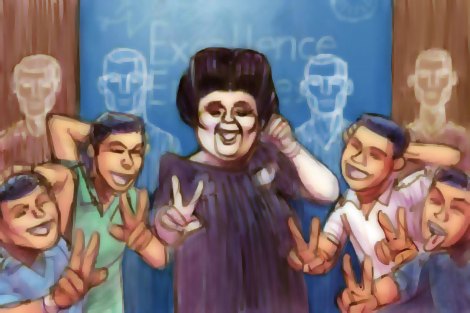
INTERNATIONAL
- Fatima Measham
- 29 August 2014
7 Comments
As the world marks the International Day of the Victims of Enforced Disappearance on August 30, new generations of Filipinos find it hard to grasp what it meant to express dissent when Ferdinand Marcos was president. Some assert that, compared to the current standard of governance and politics, life must have been better under Marcos. Such perceptions are validated when trusted institutions invite Imelda Marcos as guest of honour.
READ MORE 